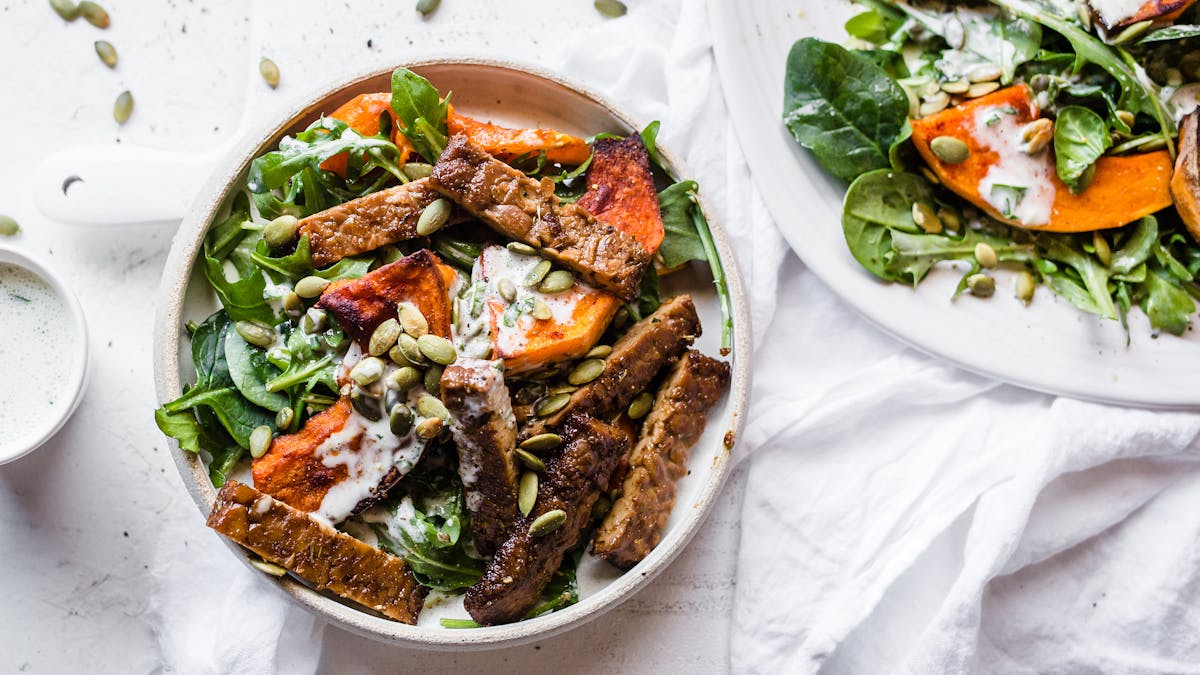The Game Changers review: Should everyone eat a vegan diet?

At one point in the pro-vegan documentary The Game Changers, a television announcer interviewing a dietitian who works for the National Cattlemen’s Beef Association exclaims: “How on earth is the viewer supposed to make sense of all of this?!”
It’s a good question, for this movie and all the other “diet wars” books, movies, and articles.
The Game Changers, recently released on Netflix, follows mixed martial arts fighter James Wilks as he explores “the science” behind omnivorous and vegan diets and tells the stories of several elite athletes who use a vegan diet as part of their training. Wilks’s story takes a personal turn when his father suffers a heart attack, and Wilks convinces his entire family to “go vegan” in order to turn his father’s health around.
There’s no denying the charm of the story; it has a fist-bumping, underdog-applauding, heart-warming appeal. You don’t have to believe that vegan diets are the answer to everything to hope that Wilks’s father gets to celebrate many more birthdays with his grandkids.
But Wilks and the movie’s producers apparently want you to believe that vegan diets are the answer to everything. They seem to want to show you “the real truth” about how vegan diets are the “optimal” diet for everyone, everywhere, under all circumstances.
This means, just like the battle featured in the film between vegan fighter Nate Diaz and omnivore Conor McGregor, there can be only one winner. All the other diets (with animal products) must lose.
But the real truth about these zero-sum, winner-takes-all approaches to nutrition ― and this applies to all sides of the “diet wars” ― is that they ignore a simple reality: different diets work differently for different people. No one diet rules them all.
Facts mixed with fuzzy logic
Any argument that claims otherwise may present scientific evidence, but it is likely driven by ideology. When this happens, as this movie demonstrates, the viewer is presented with both clear reasoning backed by well-established facts, along with fuzzy, contradictory arguments that distort reality.
For example, vegan bodybuilder Nimai Delgado busts the myth that “soy raises estrogen levels.” As the movie explains, phytoestrogens in soy can enhance estrogen activity in some ways (by closely mimicking estrogen) but block it in other ways (by not mimicking estrogen closely enough).
Here at Diet Doctor, we agree. We recently reviewed the evidence on soy and updated our position on it to reflect our understanding of current evidence.
But Wilks then goes on to claim that it’s animal products that have an abnormal impact on hormones. However, as with the science regarding the adverse effects of soy, the totality of the evidence indicates this is not the case.
In another example, the film highlights the importance of protein in the human diet and adds that, if all essential amino acids are consumed in the appropriate amounts, their source ― plants or animals ― is not necessarily important.
At Diet Doctor, we believe the evidence supports this claim as well: Protein is important, and you can get adequate amounts and quality from both plant and animal sources, although the latter does make this a little easier.
Why, then, does the film later argue that “the problem is animal protein itself”? In the movie, famed Harvard nutritional epidemiologist, Dr. Walter Willett, suggests that “amino acids that come from animal sources tend to make our cells rev up.” Aside from this being an unclear statement in relation to the science of biochemistry ― What, exactly, does it mean for a cell to “rev up”? Is this a good thing or a bad thing? ― it contradicts the earlier claim that the source of protein doesn’t matter. You can’t have it both ways.
This is the problem with arguments based on ideology: Dogma doesn’t always match available evidence and when it doesn’t, language and evidence are shaped to fit the beliefs being endorsed.
Adding fuel to the “diet wars”
In an ironic example of how special interests are promoted and protected with marketing tactics, Wilks describes how cigarette manufacturers used athletes ― “the ultimate symbols of fitness and health,” according to the movie ― and doctors ― trusted symbols of authority ― to sell cigarettes. This in a movie that, yes, uses athletes and doctors to market veganism.
One doctor who presents a particularly salacious bit about the effects of a vegan meal on overnight erections admits it is “not a scientifically validated study,” but there’s no denying that even hinting that a meat-free meal makes a man’s penis bigger is a very effective strategy for selling vegan diets.
The film goes on to describe how the tobacco industry protected the sales of cigarettes when evidence of their adverse health effects began to emerge, “trotting out their own paid researchers to come out with statements to confuse the issue.” Wilks suggests that these same underhanded tactics are used by “another big industry,” namely fast food manufacturers. In the bizarre math of the movie, “fast food” equals “animal products,” with vegan-friendly fast foods like soda and French fries apparently being automatically subtracted.
When “evidence against animal foods started stacking up,” Wilks argues, “the meat, dairy, and egg industries … engaged in a covert response, funding studies that deny this evidence while burying their involvement in the fine print.”
Even aside from the fact that, as the recent set of studies from Annals of Internal Medicine demonstrates, the “stack” of evidence “against animal foods” is a flimsy house of cards, this is again a distortion of reality.
Yes, the meat, egg, and dairy industries have funded nutrition studies that demonstrate the healthfulness of their products, just as vegan-friendly sectors of the market ― vegetable oil, wheat, soy, and sugar producers ― fund studies that do the same for their products. These practices have been a part of how nutrition science gets made for many decades. But at least financial conflicts of interests must be declared, if only in the “fine print.”
Ideologies, on the other hand, aren’t declared anywhere. No one will be surprised by the expected stable of experts that appear in defense of “plant-based” (read: vegan or near-vegan) diets. Dean Ornish, Caldwell Esselstyn, and Walter Willett have been vocal supporters of these diets for many years if not decades, and it would be naïve to suggest that their understanding of nutrition research is unrelated to their own beliefs.
At the same time, keto diets have their own set of experts. Could we predict who might appear in a low-carb version of The Game Changers? Wouldn’t we expect – or even prefer – a similarly biased, “one diet to rule them all” approach to promote the diet that we champion here at Diet Doctor?
Vegan vs. low carb? You don’t have to choose
In truth, we are not interested in adding fuel to the diet wars. Goodness is one of our company values, and we’d like to promote that value in our approach to vegetarian and vegan diets.
This is why we refuse to insist that everyone must choose between eating meat and reducing carbohydrate intake. Although this position may be unpopular with some, we recognize that different people have different needs and preferences when it comes to food and health.
If you wish to eat animal products, including meat, we have hundreds of low-carb resources and recipes for you.
If not, we have comprehensive guides to help those who want to enjoy the benefits of a keto vegetarian diet or a low-carb vegan diet.
We have many vegetarian and vegan recipes available for free, plus new and updated vegetarian and vegan meal plans for Diet Doctor members.
Unlike the showdown between vegan Diaz and omnivore McGregor, there doesn’t have to be just one winner. And in fact, in a rematch, McGregor beat Diaz. Different situation; different outcome. We recognize and appreciate that our readers are different too.


New low-carb vegan guide + meal plan
At Diet Doctor, our goal is to make low carb simple for people everywhere, and include as many dietary preferences as possible.